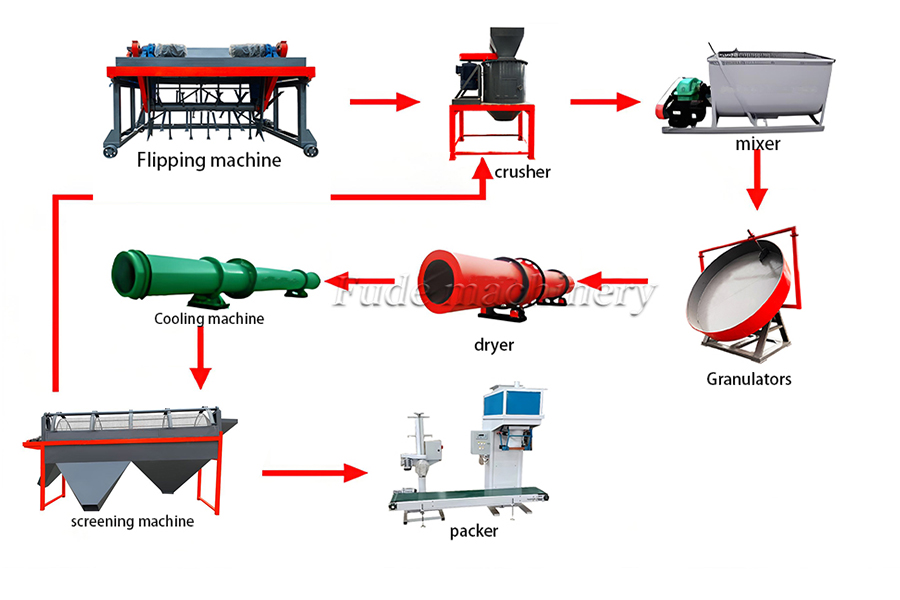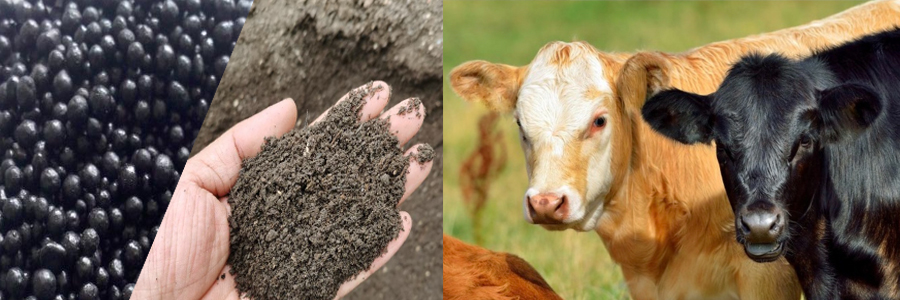Why use an organic fertilizer powder production line
230It is playing an increasingly important role in agricultural production
View detailsSearch the whole station
Do you have cow manure? Do you want to use it on fields? Using raw manure can cause big problems.
Using raw cow manure directly on soil is risky. It contains pathogens, weed seeds, and unstable compounds. These things can harm plants, pollute the environment, and spread disease. Composting fixes these issues.
Turning cow manure into compost is a smart step. It changes waste into a valuable resource. Composting makes manure safe and effective for soil.
Have waste cow manure? Want to make it useful? Composting makes it valuable.
Composting cow manure transforms it into stable organic fertilizer. This process kills harmful substances and creates a soil amendment that improves plant growth and soil health. It turns waste into treasure.
Doing large-scale composting? Want to work faster? Machines are necessary helpers.
For large-scale cow manure composting, specific machines like turning machines, mixers, and screening machines are essential. They speed up the process, reduce labor, and improve the final compost quality significantly.

Got finished cow manure compost? Wondering what to do next? Proper handling is key.
Store finished cow manure compost in a dry, covered area away from direct sunlight and rain. Use it by incorporating it into the soil before planting or spreading it as a top dressing around existing plants.
Once the cow manure is fully composted and mature, it is ready for storage or use. Storing it correctly is important. You want to keep its quality. Store it in a place that is dry. Rain can add water back. This can make it heavy. It can also leach out nutrients. Store it away from direct sun. Sun can dry it out too much. It can also degrade some organic matter over long periods. A covered shed or a large tarp can protect the pile. Good airflow is helpful. This prevents moisture buildup. For selling, you might package the compost. We have packaging machines. They can weigh and bag the finished compost. Using the compost is simple. You can spread it over your fields before planting. Then you till it into the soil. This gets the nutrients down to the plant roots. It improves the soil structure throughout the topsoil. You can also use it on plants that are already growing. Spread it around the base of the plants. This is called top dressing. Water it in after applying. The nutrients will slowly release over time. Composted manure adds organic matter. This is very good for soil health. It feeds the soil microbes. It makes the soil more fertile naturally. The amount you use depends on your soil. It also depends on what you are growing. Soil testing can help you decide how much to apply. Always use mature compost. Immature compost can still harm plants.

Need machines for cow manure? Many options are out there. How do you pick the right ones?
When choosing cow manure processing equipment, you must consider your required processing capacity, the desired level of automation, and the available space or footprint at your site. These factors guide equipment selection.
Picking the right equipment is a big decision. The first thing to know is how much cow manure you need to process. This is your processing capacity. Do you have 10 tons a day or 100 tons a day? This number tells you the size and number of machines you need. Small farms need smaller machines. Large farms or commercial composters need much bigger systems. We design lines for different capacities. Tell us your amount. We can suggest equipment. Next, think about how much work you want machines to do. This is the automation level. Do you want manual loading and simple turning? Or a system that moves material automatically between steps? More automation means less labor. It can mean more consistent results. But it also costs more upfront. We can provide single machines or complete automatic lines. Consider your budget. But also think about long-term labor savings. The space you have is also very important. This is the footprint. Different composting methods need different space. Windrow composting needs long, open areas. Trough composting needs fixed concrete channels. In-vessel systems use less space but cost more. Your equipment must fit your site. Think about where machines will move. Think about where raw material, processing areas, and finished product storage will go. Other things matter too. What is the final product form? Powder or granules? This affects which machines you need at the end (like crushers, granulators). What is your budget? What kind of service and support do you need? We provide full service from design to installation and training.
Composting cow manure is wise. It turns waste safe and useful. Choose the right machines based on your needs.
It is playing an increasingly important role in agricultural production
View detailsIt converts organic waste into nutrient rich organic fertilizers.
View detailsCompound fertilizer production line equipment refers to a series of mechanical equipment combinations used for producing compound fertilizers
View detailsIt is a device that processes organic waste through a series of processes and ultimately produces powdered organic fertilizer.
View details